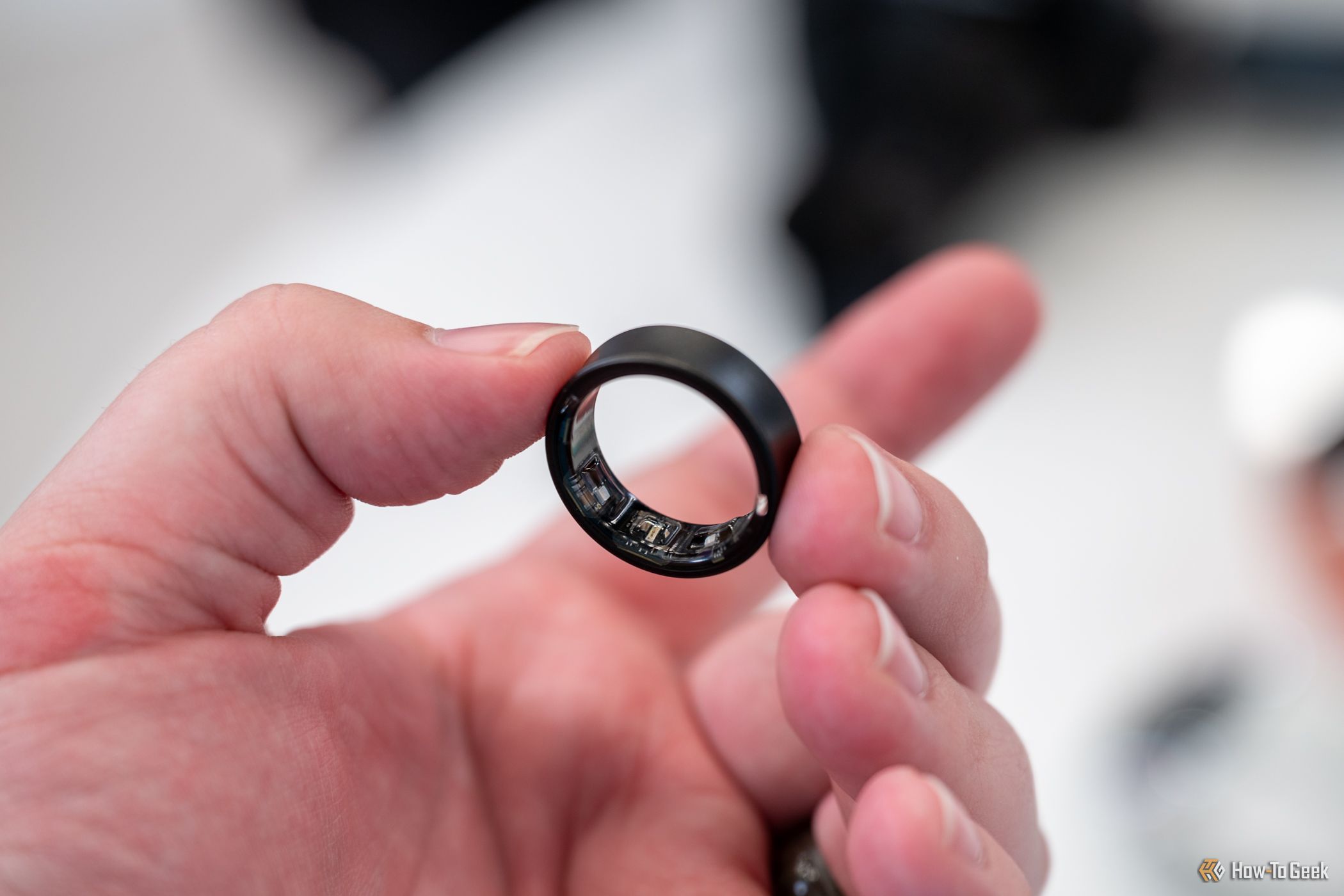
My Passion for Starry Jewelry Denied by Samsung – A Tale of Cosmic Aspirations and Tech Restrictions

My Passion for Starry Jewelry Denied by Samsung – A Tale of Cosmic Aspirations and Tech Restrictions
Key Takeaways
- Samsung Galaxy Ring is a wearable with a one-time fee, unlike closest rival Oura which requires a subscription.
- But the Galaxy Ring’s dependence on Galaxy phones limits the potential market among Android and iPhone users.
- Samsung’s exclusivity approach feels like a huge missed opportunity, with money left on the table in a market where Apple doesn’t even compete.
As a smart ring wearer, I was excited to see Samsung finally enter the market with a new wearable of its own. But my excitement quickly turned to disappointment when I noticed the large asterisk Samsung had placed on its latest Galaxy device.
Introducing the Samsung Galaxy Ring
Samsung’s long-awaited smart ring, the Galaxy Ring, finally launched in mid-2024 to take on the market leader, the Oura Ring which is now on its third-generation .
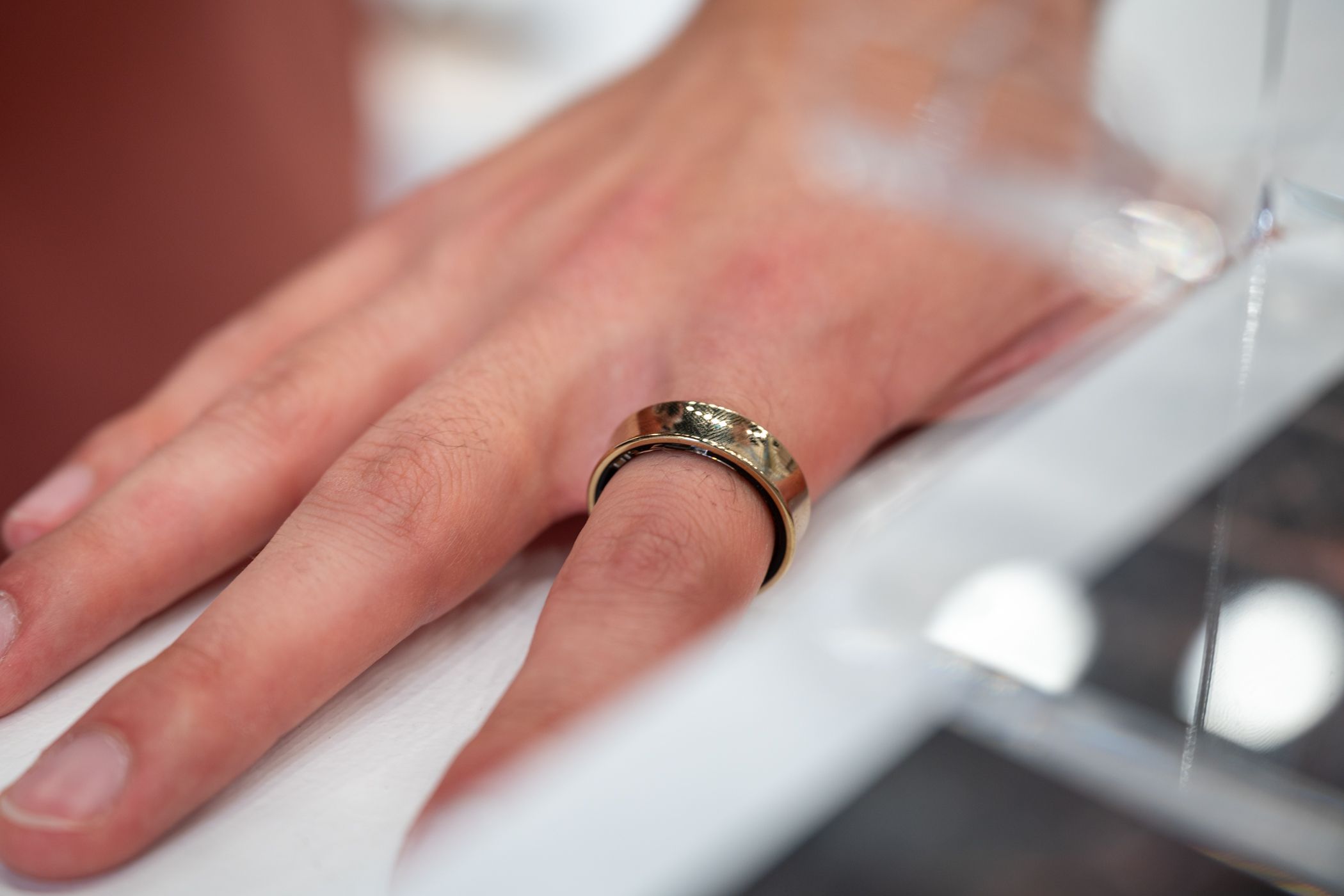
Justin Duino / How-To Geek
The new kid on the block has a fair bit going for it. Samsung is a far better-known brand than Oura, and so the company’s smart ring received a lot of press attention for this reason. For many people, the first time they become aware of a tech category is when one of the big names gets into the game.
Functionality-wise, the Galax Ring is a decent offering, as noted in our brief hands-on . The sleek ring packs a lot of tech into a tiny form factor, measuring heart rate, blood oxygen, skin temperature, activity, and sleep cycles. It’s available in titanium black, titanium silver, and titanium gold and comes with its own wireless charging case.
Samsung has also borrowed from Oura the idea of distilling a lot of complex data into simple metrics, offering you daily sleep and energy scores. Additionally, the Galaxy Ring has FDA clearance to alert you about sleep apnea and irregular heart rhythms which could point to a potentially dangerous heart condition known as atrial fibrillation, or Afib.
No Subscription Needed
The big news, however, is what Oura hasn’t copied from Oura—namely, the need for a subscription to gain full access to the data.
The Oura Ring gives you access to a great deal of data, even more than the Galaxy Ring. But getting full access to it comes at a price: either $5.99 per month, or $69.99 per year. That’s on top of the price of the Ring itself, which starts at $299.
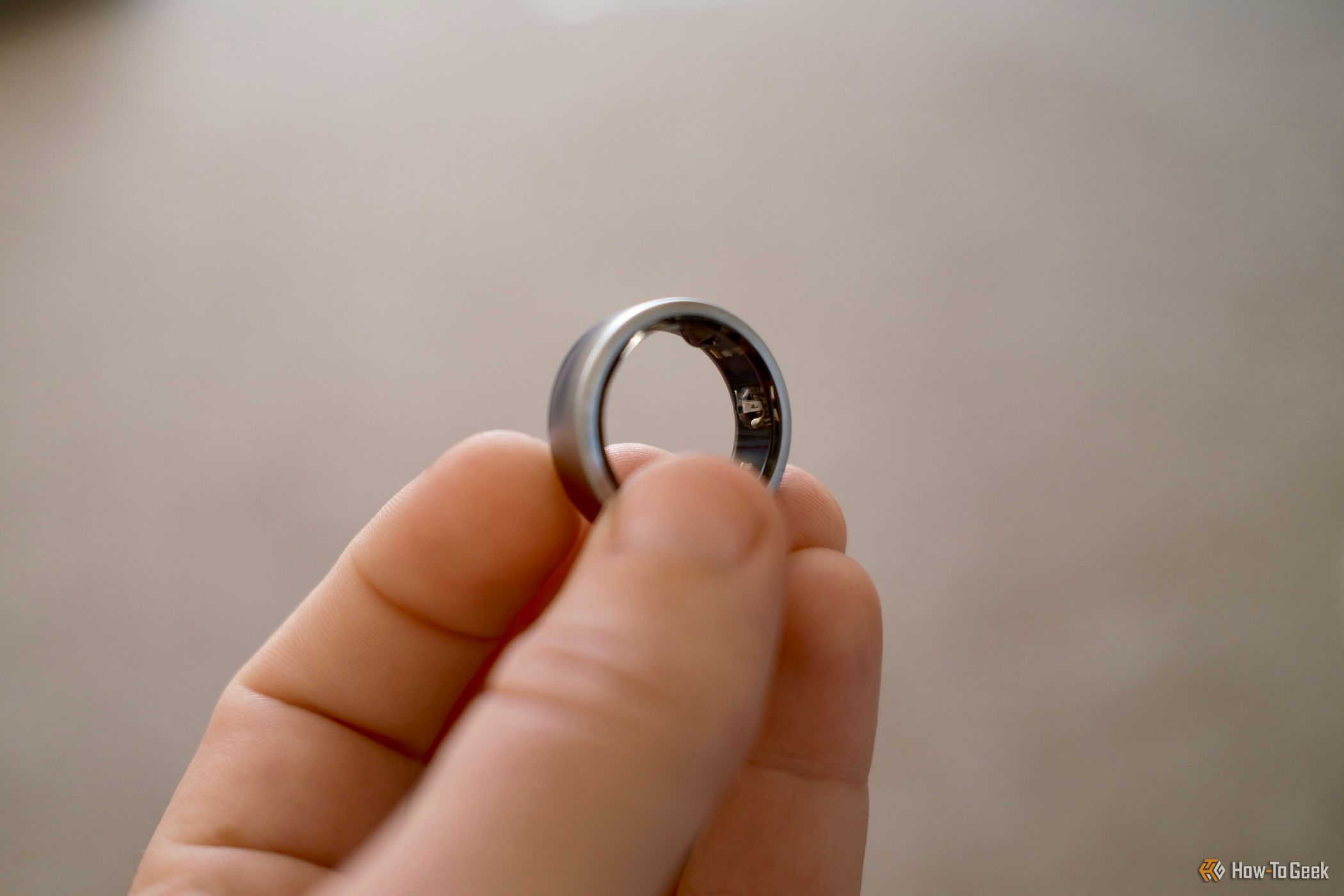
Tyler Hayes / How To Geek
The Galaxy Ring, in contrast, gives full access to all available data in the Samsung Health app without any ongoing cost. At a time when consumers are increasingly suffering from subscription fatigue, that’s a big selling point for Samsung. It also means you can gift the ring (or pass it on to someone when you’re done with it) without worrying about them needing to pay for a subscription to get the most out of it.
But there’s a problem…
The Galaxy Ring Requires a Galaxy Phone
Samsung has chosen to make the Ring exclusive to Galaxy smartphone owners. To be clear, that’s not a technical issue. The Samsung Health app runs on any smartphone, including iPhone, and the Ring sends its data to the app via a perfectly standard Bluetooth connection. There’s no reason the Ring couldn’t work with any smartphone that satisfies these requirements.
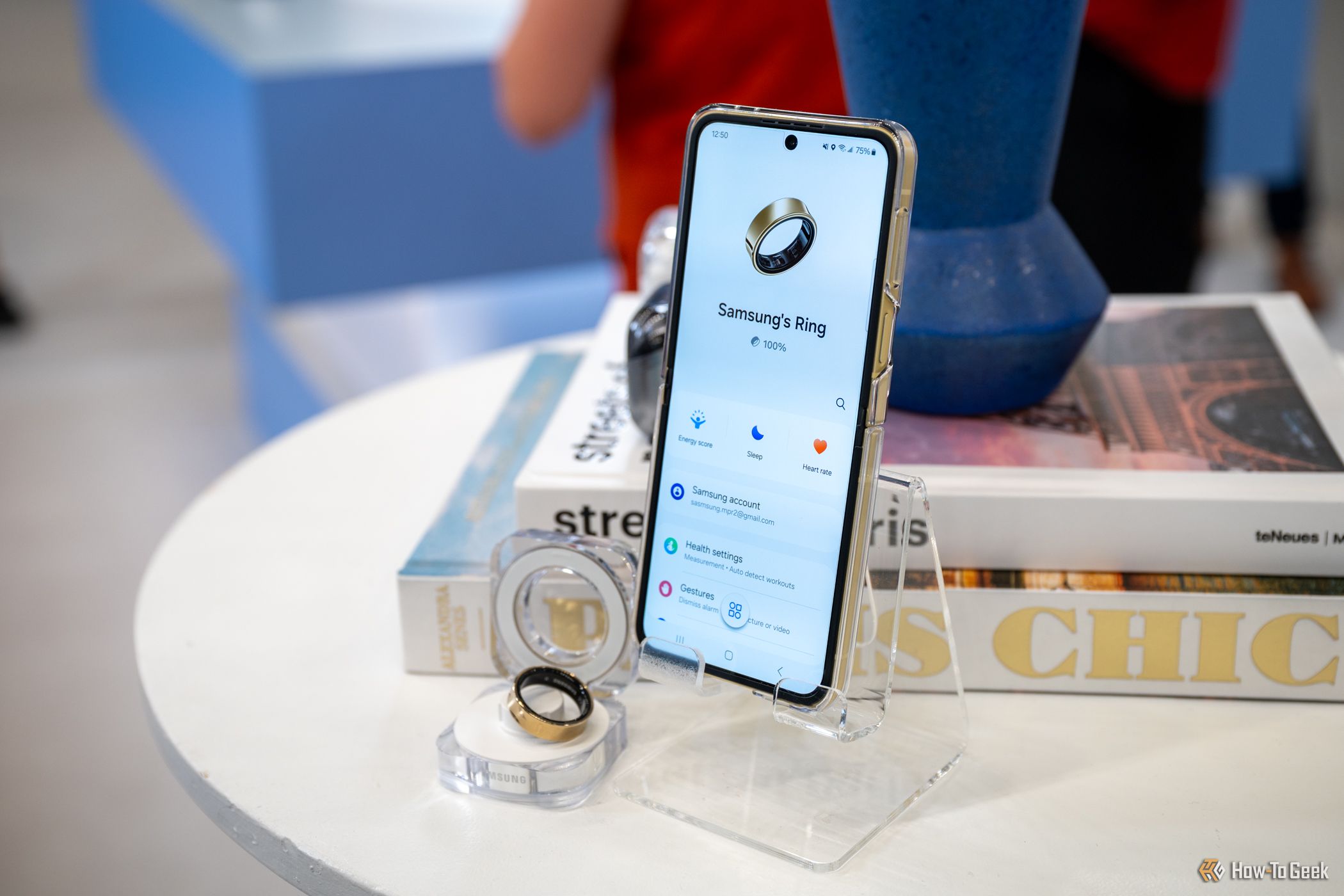
Justin Duino / How-To Geek
No, this is a purely commercial decision. Samsung is hoping the Ring will be sufficiently appealing that making it exclusive to its Galaxy phones will persuade people to buy one.
That’s a Gamble With Android
For other Android phone owners, that’s a gamble. Some may not care about the brand of their phone, or be wedded to any particular features or design elements it may offer. That’s a slice of the market which may be happy to switch to Samsung the next time they upgrade. Perhaps some will even be keen enough on the Ring to upgrade ahead of schedule and buy a Galaxy phone now.
But there are Android owners who do care about their choice of phone. Many Google Pixel owners fall into this category, for example. They like getting unadulterated Android direct from Google, without any bloatware; they appreciate the clean photo processing; they like the call screening; and so on.
In trying to force people to buy Galaxy phones, Samsung is locking itself out of many potential Ring sales it might otherwise have made.
It’s a Wild Bet for iPhone
However big of a gamble that may be with Android, it’s a buck-wild bet with iPhone owners. Even for the least loyal iPhone owner on the planet, Samsung is telling them they have to get used to a whole new user interface; repurchase most of their apps; and sacrifice both iMessage and FaceTime.
For most iPhone owners, it’s way more than that. Samsung is asking them to give up their entire ecosystem.
For example, you can start writing something on a Mac, continue on an iPad, and do some final tweaks on an iPhone—all without any prior setup. You can copy and paste between different Apple devices. You can download a file on your iPhone and set your iPad or Mac as the destination. You can share passwords between Apple devices, just by bringing one close to the other. You can wirelessly share files, photos, or contacts using AirDrop. You can receive text messages on your iPad and phone calls on your Mac.
I could go on, but you get the idea. There is no way that the average iPhone user is going to consider, even for a moment, switching to a Galaxy phone just to be able to buy a Galaxy Ring. Especially when Apple already produces a wearable that does much of the same in the form of the Apple Watch (though admittedly the form factor and battery life are considerably different).
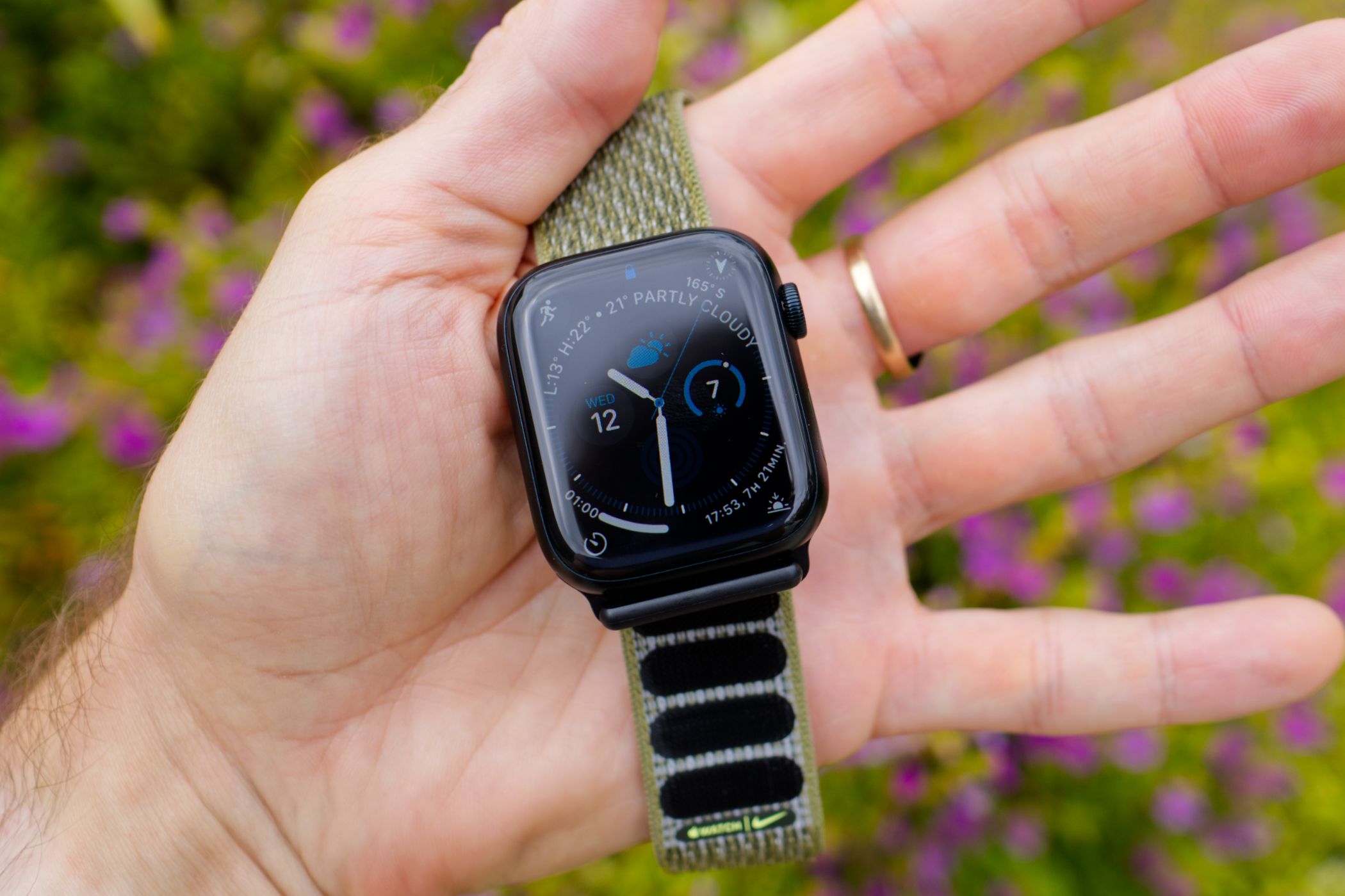
Tim Brookes / How-To Geek
So in making this decision, Samsung is robbing itself of a huge slice of the market. It’s more than 70% of the US market, more than 50% in each of Canada and the UK, and more than a quarter of the market in EU countries.
It’s not just the size of the market, either. iPhone owners, on average, have higher disposable incomes, and a known propensity for buying sleek technology. Like, oh, I don’t know, a smart ring.
Samsung Won’t Take Your Money
I like my Oura Ring and I think the subscription fee is justified by the combination of the data it provides and the thoughtful ways the app presents that data. But if Samsung could have offered something similar without the annual cost, it could have won my business.
As it is, I can’t give Samsung my money, and the same is true for a huge number of the smartphone-owning population. That’s not smart business, that’s just hubris.
Also read:
- [New] GoPro Hero5 Silver Meets SJCAM SJ7
- [New] Ultimate Escapades Our Selection of Best Action-Adventures for 2024
- [Updated] 2024 Approved How to Promote Telegram Marketing A Beginner's Guide?
- 2024 Approved Ultimate Ringtone Collection Top Download Locales
- Ethereal Editing in Extended Frame Rate
- Peak Craft Studio 25 Overview
- Revolutionizing Remote Tech Careers: The Impact of VR & Digital Twins on Telecommuting | ZDNet
- Spring Into Savings: Exploring Walmart's Steal of an Offer on Meta Quest 2 at Just $200 - A Compelling Alternative to Amazon's Huge Sale Event
- The Insider's Guide to Capturing Spectacular Spatial Videos with iPhone 15 Pro: Exclusive Tips Inside!
- Top Ways to Turn Your Shorts Into a Money Machine on YouTube for 2024
- Transforming UX with XR, Digital Twins & Spatial Tech: A Comprehensive ZDNet's Enterprise Handbook
- Will the iPogo Get You Banned and How to Solve It On Sony Xperia 10 V | Dr.fone
- Title: My Passion for Starry Jewelry Denied by Samsung – A Tale of Cosmic Aspirations and Tech Restrictions
- Author: Donald
- Created at : 2025-01-19 17:40:08
- Updated at : 2025-01-24 16:44:46
- Link: https://some-tips.techidaily.com/my-passion-for-starry-jewelry-denied-by-samsung-a-tale-of-cosmic-aspirations-and-tech-restrictions/
- License: This work is licensed under CC BY-NC-SA 4.0.